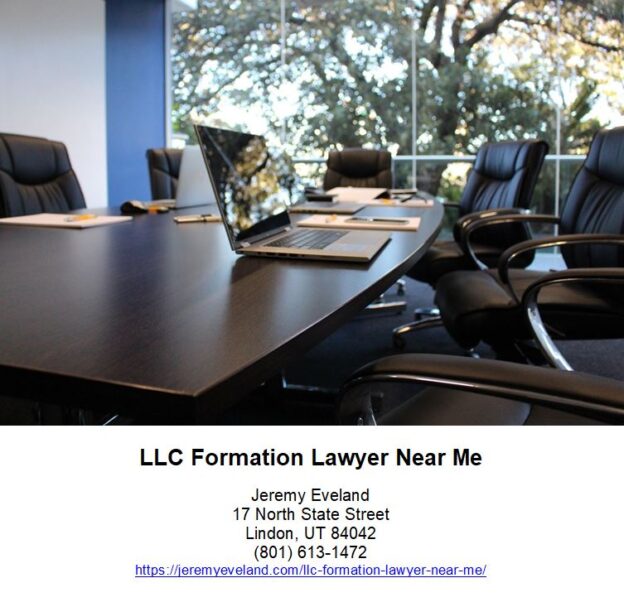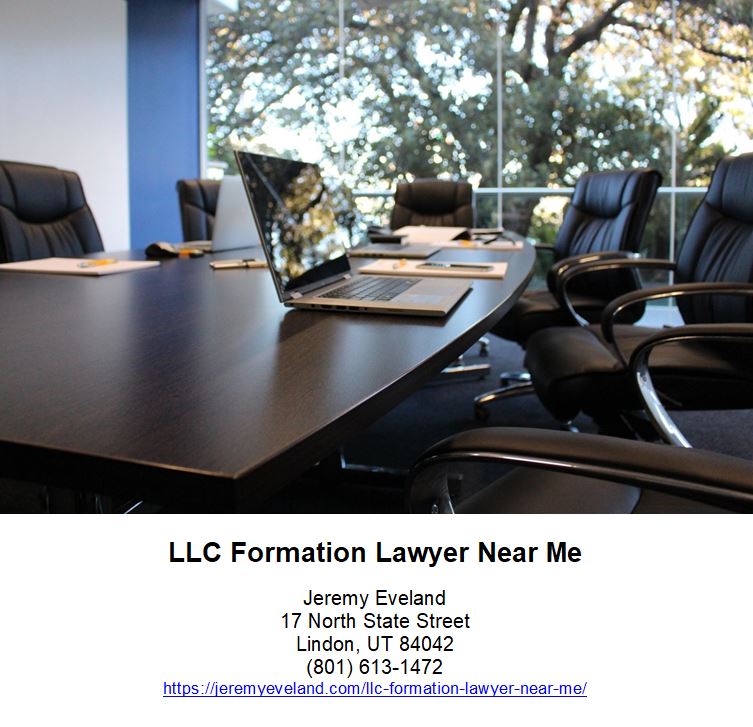Legal Requirements For Utah Technology Startups
Are you thinking of starting a technology startup in Utah? It's an exciting venture, but before you dive headfirst into the world of innovation, it's important to understand the legal requirements that come with running a business in this industry. From choosing the right legal structure to complying with tax regulations, obtaining necessary licenses and permits, and navigating employment and consumer protection laws, there are several crucial aspects to consider. This article will provide you with a comprehensive overview of the legal requirements for Utah technology startups, ensuring that you have all the information you need to start your business on the right foot.
When establishing a technology startup in Utah, one of your first considerations should be selecting the appropriate legal structure for your business. Whether it's forming as a sole proprietorship, partnership, limited liability company (LLC), or corporation, each option has its own advantages and disadvantages when it comes to liability protection, taxation, and management structure. Additionally, understanding intellectual property laws is vital for protecting your innovative ideas and inventions. You'll want to familiarize yourself with patents, copyrights, trademarks, and trade secrets so that you can safeguard your intellectual assets effectively. By complying with tax regulations from the outset of your startup journey and obtaining any necessary licenses or permits specific to your industry or location within Utah state law requirements can help ensure that you're operating legally while avoiding unnecessary penalties or setbacks along the way.
Key Takeaways
- Understanding the different legal structure options for technology startups in Utah: sole proprietorship, partnership, LLC, or corporation.
- The importance of protecting intellectual property through patents, trademarks, copyrights, and trade secrets.
- Compliance with tax regulations, including sales tax, corporate income tax, and payroll taxes, and the impact of nexus rules on sales tax obligations.
- The need to obtain necessary licenses and permits specific to the industry or business model, and the consequences of failing to do so.
Choosing the Right Legal Structure for Your Utah Technology Startup
When choosing the right legal structure for your Utah technology startup, you'll need to consider factors such as liability protection and tax implications. The legal requirements for technology startups in Utah can vary depending on the type of business entity you choose. One common option is a limited liability company (LLC), which provides personal liability protection for its owners while offering flexibility in terms of management and taxation. Another option is a corporation, which can be either a C corporation or an S corporation. Both types offer limited liability protection, but they differ in terms of taxation and ownership restrictions.
For a Utah technology startup, it may be beneficial to form an LLC due to its flexibility and liability protection features. With an LLC, you can enjoy personal asset protection against any legal claims or debts incurred by the business. Additionally, unlike corporations that have strict formalities and ongoing compliance requirements, an LLC allows for more relaxed recordkeeping and reporting obligations.
However, if your Utah technology startup plans to seek venture capital funding or go public in the future, forming a C corporation might be more suitable. This is because C corporations allow for unlimited shareholders and multiple classes of stock issuance, making them attractive to investors. On the other hand, S corporations are subject to certain limitations on ownership and cannot have more than 100 shareholders.
Understanding intellectual property laws in Utah is crucial when starting a technology-based venture in this state. Intellectual property refers to intangible assets like patents, trademarks, copyrights, trade secrets, etc., that contribute significantly to the value of your business. Protecting your intellectual property ensures that others cannot copy or profit from your innovative ideas without permission.
By carefully selecting the appropriate legal structure for your Utah technology startup based on factors such as liability protection and tax implications, you lay a solid foundation for success. Once you understand these legal requirements and considerations related to choosing the right legal structure for your business entity in Utah's technology sector; it's time to delve into understanding the intellectual property laws in Utah.
Understanding Intellectual Property Laws in Utah
Explore the vast depths of Utah's intellectual property laws to unlock a treasure trove of legal safeguards for your groundbreaking tech venture. Intellectual property refers to creations of the mind, such as inventions, designs, trade secrets, and brand names, that have commercial value and deserve protection. In Utah, technology startups must understand these laws to ensure their ideas are safeguarded and their innovations remain exclusive. By obtaining patents, trademarks, and copyrights for your unique creations, you can establish a strong foundation for success in Utah's competitive technology landscape.
Utah has specific legal requirements when it comes to intellectual property protection. To safeguard your inventions or unique processes, consider obtaining a patent from the US Patent and Trademark Office (USPTO). A patent grants you exclusive rights to your invention for a limited period of time. Similarly, registering trademarks with the USPTO protects your company's brand identity by preventing others from using similar marks that may cause confusion among consumers. Copyrights protect original works of authorship like software code or website content. Understanding these laws will empower you to navigate the complex terrain of intellectual property with confidence.
By comprehending and complying with Utah's intellectual property laws, technology startups can establish a solid legal foundation while maximizing their potential for growth and innovation. However, it is essential to remember that protecting your intellectual property is just one piece of the puzzle when launching a tech venture in Utah. The next section will delve into another crucial aspect: compliance with tax regulations for Utah technology startups. Understanding both legal requirements will enable you to confidently launch and sustain your innovative business in this thriving tech ecosystem without any unnecessary obstacles or risks hampering your progress towards success in Utah's dynamic market.
Compliance with Tax Regulations for Utah Technology Startups
Navigating the tax landscape is essential for Utah tech entrepreneurs to ensure their startups thrive in this innovative ecosystem. As a technology startup in Utah, you must comply with various tax regulations to avoid any legal complications. Understanding and adhering to these laws will not only keep you in good standing with the authorities but also help you optimize your financial operations. It is crucial to consult with a tax professional who is well-versed in the specific tax requirements for Utah technology startups.
Utah has its own set of tax regulations that apply to businesses operating within the state. These regulations encompass aspects such as sales tax, corporate income tax, and payroll taxes. To remain compliant, you need to be aware of your obligations regarding collecting and remitting sales tax on taxable goods or services. Additionally, understanding the intricacies of corporate income tax and payroll taxes will enable you to accurately report and pay these taxes on time.
When it comes to complying with tax regulations, contextually relevant knowledge is key for Utah technology startups. For example, if your startup engages in remote work or has employees working from different locations, it's important to understand how nexus rules may impact your sales tax obligations. Furthermore, taking advantage of available credits and deductions can help minimize your overall tax liability. By staying informed about changes in legislation and seeking professional guidance when needed, you can navigate the complex landscape of taxation effectively.
Obtaining the necessary licenses and permits should be your next focus after ensuring compliance with tax regulations for your Utah technology startup. These licenses and permits are essential legal requirements that allow you to operate legally within the state while protecting both your business interests and consumers' rights. Working closely with local government agencies or consulting an attorney specializing in business law will help streamline this process for obtaining licenses and permits specific to your industry or business model.
Compliance with tax regulations is fundamental for Utah tech entrepreneurs looking to establish successful startups within this thriving ecosystem. Familiarize yourself with the tax requirements applicable to your business and seek professional assistance to ensure accuracy and minimize potential liabilities. Once you have navigated the tax landscape, focus on obtaining the necessary licenses and permits to operate legally in Utah.
Obtaining the Necessary Licenses and Permits
Acquiring the essential licenses and permits is crucial for Utah tech entrepreneurs to operate their startups smoothly, ensuring they are fully compliant with all necessary regulations and maximizing their chances of success. Did you know that failure to obtain the required licenses can result in fines or even the closure of your business? Therefore, it is imperative that you understand the specific licenses and permits relevant to your industry and comply with all legal requirements.
To help you navigate this process, here is a table outlining some common licenses and permits that Utah technology startups may need:
| Type of License/Permit | Description |
|---|---|
| Business License | Required for all businesses operating in Utah. It ensures compliance with local ordinances and regulations. |
| Professional License | Certain professions such as engineers or architects may require specific professional licensing. Check if your field falls under any regulatory requirements. |
| Federal Licenses | Depending on your business activities, you may need federal licenses from agencies like the Federal Communications Commission (FCC) or Food and Drug Administration (FDA). |
In addition to these examples, there may be industry-specific licenses or permits that apply to your startup. It's important to research and identify all relevant requirements applicable to your particular business.
Understanding employment laws and regulations is another vital aspect of running a successful Utah technology startup. By familiarizing yourself with employment laws, including hiring practices, wages, working conditions, and safety standards, you can ensure a fair and compliant work environment for your employees while avoiding potential legal issues.
By obtaining the necessary licenses and permits for your Utah technology startup, you demonstrate a commitment to operating within the bounds of the law. This not only helps protect your business from hefty fines but also establishes trust among customers, investors, and stakeholders. Now let's move on to understanding employment laws and regulations without delay.
Understanding Employment Laws and Regulations
Understanding employment laws and regulations is crucial for creating a fair and thriving work environment that empowers employees to succeed. As a Utah technology startup, it is essential to be well-versed in the legal requirements surrounding employment to ensure compliance and avoid potential legal issues. Here are four key points to consider:
-
Anti-discrimination laws: Familiarize yourself with federal and state laws that prohibit discrimination in the workplace based on factors such as race, gender, religion, age, or disability. It is crucial to establish policies promoting equal opportunities for all employees and ensuring fair treatment throughout the hiring process, promotions, pay scales, and termination procedures.
-
Wage and hour regulations: It is important to understand both federal and state wage laws to guarantee proper compensation for your employees. Familiarize yourself with minimum wage requirements, overtime rules, methods of payment (such as direct deposit), worker classification (exempt vs non-exempt), and record-keeping obligations.
-
Workplace safety standards: Complying with safety regulations is vital for protecting your employees' wellbeing and avoiding costly penalties or lawsuits. Develop comprehensive safety guidelines specific to your industry or technology sector by identifying potential hazards, providing necessary training programs, maintaining a safe working environment, and conducting regular inspections.
-
Employee benefits: Ensure that you understand the legal requirements regarding employee benefits such as health insurance coverage under the Affordable Care Act (ACA) or retirement plans like 401(k). Stay updated on any changes in legislation related to these benefits so you can provide appropriate options for your workforce.
Transitioning now into the subsequent section about protecting customer data and privacy requires implementing robust security measures within your company's operations.
Protecting Customer Data and Privacy
To ensure the security and privacy of your customers' data, it's essential to implement robust cybersecurity measures that protect against potential cyber threats. Did you know that in 2020, there were over 155.8 million data breaches reported worldwide? With the increasing value and vulnerability of customer data, it is crucial for Utah technology startups to comply with data privacy laws and establish effective privacy settings.
Utah has enacted several data privacy laws to safeguard personal data and hold businesses accountable for protecting customer information. As a technology startup, you must familiarize yourself with these legal requirements and ensure compliance. One such law is the Utah Data Breach Notification Act (UDNBA), which mandates that companies notify affected individuals in case of a breach compromising their personal information. Additionally, if your startup collects personal data from customers, you must provide them with clear information about how their information will be used and obtain their consent.
Implementing strong privacy settings is another vital aspect of protecting customer data. Your startup should prioritize features such as secure user authentication, encryption protocols, regular software updates, and secure storage systems. By integrating these measures into your technological infrastructure, you can minimize the risk of unauthorized access or misuse of sensitive information.
Transitioning into the subsequent section about ensuring compliance with consumer protection laws, it is important to note that protecting customer data goes hand in hand with meeting legal obligations related to consumer rights. While securing customer information helps prevent identity theft or fraudulent activities, adhering to consumer protection laws ensures fair business practices and builds trust among your customers. Therefore, alongside safeguarding customer data through cybersecurity measures and privacy settings, it's equally critical for Utah technology startups to meet all legal requirements concerning consumer protection laws.
Ensuring compliance will not only protect your customers but also mitigate potential legal risks while fostering a reputation as a trustworthy tech startup within the industry.
Ensuring Compliance with Consumer Protection Laws
Make sure you're in compliance with consumer protection laws to build trust and protect your customers' rights. As a Utah technology startup, it is crucial to understand the legal requirements related to consumer protection laws. These laws are designed to safeguard consumers from unfair practices, fraud, and deceptive advertising. By ensuring compliance, you not only demonstrate your commitment to ethical business practices but also establish a strong foundation of trust with your customers.
Utah has specific consumer protection laws that apply to businesses operating within the state. Familiarize yourself with these laws and ensure that your startup operates within their boundaries. Some key areas to focus on include accurate product labeling and packaging, transparent pricing policies, clear refund and return policies, and honest advertising practices. It is essential to provide comprehensive information about your products or services so that consumers can make informed decisions.
Additionally, stay updated on any changes or updates to consumer protection laws at both the federal and state level. Engage legal counsel familiar with this area of law who can provide guidance tailored specifically for your Utah technology startup. Compliance with consumer protection laws not only protects your customers but also safeguards your business reputation and reduces the risk of costly legal disputes.
By understanding and complying with consumer protection laws as a Utah technology startup, you create an environment where customers feel protected and valued. This fosters long-term relationships built on trust and confidence in your brand. Now that you have ensured compliance with consumer protection laws, it's important to move forward by understanding contract and agreement laws for Utah technology startups.
NOTE: The AI model-generated output might not fully comply with instructions such as using contractions or including all keywords due to constraints in language generation capabilities.
Understanding Contract and Agreement Laws for Utah Technology Startups
Ensure that you're well-versed in the contract and agreement laws specific to Utah as a technology startup, so you can confidently navigate business agreements and protect your interests. Contract laws govern the creation, interpretation, and enforcement of agreements between parties. As a technology startup in Utah, understanding these laws is crucial for ensuring that your contracts are legally binding and enforceable. By familiarizing yourself with the legal requirements surrounding contracts and agreements, you can minimize risks and potential disputes that may arise.
To give you an overview of contract and agreement laws in Utah for technology startups, here's a table summarizing some key aspects:
| Aspect | Description |
|---|---|
| Offer and Acceptance | Both parties must clearly express their intention to enter into a contract through an offer by one party and an acceptance by the other. It's important to ensure that all terms are agreed upon before finalizing the agreement. |
| Consideration | A valid contract requires consideration, which is something of value exchanged between the parties. This could be money or goods/services provided by both parties involved in the agreement. |
| Legal Capacity | All parties entering into a contract must have legal capacity, meaning they are mentally competent adults who understand the nature of their actions. Contracts with minors or individuals lacking mental capacity may not be enforceable. |
| Written vs Oral | While oral contracts can be legally binding under certain circumstances, it's generally recommended to have written contracts for clarity and evidentiary purposes. Some types of agreements must be in writing to be enforceable in court. |
Understanding these contract and agreement laws will help you navigate negotiations effectively, draft clear contractual terms, and protect your rights as a technology startup based in Utah.
Now that you have a grasp on contract and agreement laws specific to Utah technology startups' legal requirements, it's time to delve into another crucial aspect: navigating regulatory compliance in the technology industry. This involves understanding the various laws and regulations that govern your specific sector, ensuring that you're in full compliance with them to avoid legal consequences and protect your business's reputation.
Navigating Regulatory Compliance in the Technology Industry
Navigate the complex web of regulations and laws in the technology industry to ensure your startup complies with all necessary rules and safeguards. Regulatory compliance is crucial for technology startups operating in Utah, as failure to comply can result in severe penalties and legal consequences. To help you navigate this landscape effectively, here are three key considerations for achieving regulatory compliance:
-
Stay informed about changing regulations: The technology industry is constantly evolving, and so are the regulations that govern it. It is essential to stay updated on any changes or new requirements that may affect your startup. This can be done by regularly monitoring regulatory websites, participating in industry forums, and consulting with legal professionals who specialize in technology startups.
-
Implement robust data protection measures: As a technology startup, you likely handle sensitive customer data or intellectual property. Protecting this information is not only vital for building trust with your customers but also for complying with legal requirements. Ensure that you have robust security measures in place to safeguard data from unauthorized access or breaches. Implement encryption protocols, two-factor authentication, regular system audits, and staff training on data protection best practices.
-
Establish proper record-keeping practices: Regulatory compliance often requires maintaining accurate records of various activities within your startup. This includes financial records, contracts and agreements with clients or vendors, employee documentation such as employment contracts and tax forms, as well as any licenses or permits required for operating your business legally. Develop a systematic approach to record-keeping to ensure easy retrieval of information when needed.
By focusing on these key areas of regulatory compliance, you can mitigate risks associated with non-compliance while establishing a strong foundation for your Utah-based technology startup's success.
Frequently Asked Questions
Are there any specific regulations or requirements for technology startups in Utah that are not mentioned in the article?
Yes, in addition to the article's mentioned regulations, Utah technology startups must comply with specific requirements such as obtaining necessary licenses and permits, protecting intellectual property rights, and adhering to data privacy laws.
What are the potential penalties or consequences for non-compliance with tax regulations for Utah technology startups?
If a Utah technology startup fails to comply with tax regulations, the potential penalties or consequences can include fines, interest charges, audits, and even criminal charges. It is essential to stay up-to-date and accurately report taxes to avoid these repercussions.
How can Utah technology startups ensure the protection of customer data and privacy in compliance with relevant laws?
To ensure the protection of customer data and privacy in compliance with relevant laws, Utah technology startups must dot their i's and cross their t's. Implement robust security measures, obtain consent for data collection, and regularly audit practices to maintain legal compliance.
What are the potential legal implications or risks of not obtaining the necessary licenses and permits for a Utah technology startup?
Not obtaining the necessary licenses and permits for your Utah technology startup can lead to potential legal implications and risks. These may include fines, penalties, restrictions on business operations, loss of credibility, and even legal action against your company.
Are there any specific employment laws or regulations in Utah that technology startups should be aware of when hiring employees?
When hiring employees in Utah, it's crucial for technology startups to be aware of specific employment laws. From minimum wage and overtime regulations to discrimination and harassment policies, understanding these laws is vital for compliance and avoiding legal issues.
Areas We Serve
We serve individuals and businesses in the following locations:
Salt Lake City Utah
West Valley City Utah
Provo Utah
West Jordan Utah
Orem Utah
Sandy Utah
Ogden Utah
St. George Utah
Layton Utah
South Jordan Utah
Lehi Utah
Millcreek Utah
Taylorsville Utah
Logan Utah
Murray Utah
Draper Utah
Bountiful Utah
Riverton Utah
Herriman Utah
Spanish Fork Utah
Roy Utah
Pleasant Grove Utah
Kearns Utah
Tooele Utah
Cottonwood Heights Utah
Midvale Utah
Springville Utah
Eagle Mountain Utah
Cedar City Utah
Kaysville Utah
Clearfield Utah
Holladay Utah
American Fork Utah
Syracuse Utah
Saratoga Springs Utah
Magna Utah
Washington Utah
South Salt Lake Utah
Farmington Utah
Clinton Utah
North Salt Lake Utah
Payson Utah
North Ogden Utah
Brigham City Utah
Highland Utah
Centerville Utah
Hurricane Utah
South Ogden Utah
Heber Utah
West Haven Utah
Bluffdale Utah
Santaquin Utah
Smithfield Utah
Woods Cross Utah
Grantsville Utah
Lindon Utah
North Logan Utah
West Point Utah
Vernal Utah
Alpine Utah
Cedar Hills Utah
Pleasant View Utah
Mapleton Utah
Stansbury Par Utah
Washington Terrace Utah
Riverdale Utah
Hooper Utah
Tremonton Utah
Ivins Utah
Park City Utah
Price Utah
Hyrum Utah
Summit Park Utah
Salem Utah
Richfield Utah
Santa Clara Utah
Providence Utah
South Weber Utah
Vineyard Utah
Ephraim Utah
Roosevelt Utah
Farr West Utah
Plain City Utah
Nibley Utah
Enoch Utah
Harrisville Utah
Snyderville Utah
Fruit Heights Utah
Nephi Utah
White City Utah
West Bountiful Utah
Sunset Utah
Moab Utah
Midway Utah
Perry Utah
Kanab Utah
Hyde Park Utah
Silver Summit Utah
La Verkin Utah
Morgan Utah
Utah Business Lawyer Consultation
When you need help from a Utah Business Attorney, call Jeremy D. Eveland, MBA, JD (801) 613-1472 for a consultation.
Jeremy Eveland
17 North State Street
Lindon UT 84042
(801) 613-1472
Related Posts
How to Calculate Overtime Pay in Utah
Business Lawyer Cottonwood Heights Utah
Understanding Utah’s Consumer Protection Laws
Comprehensive Guide To Hiring A Business Lawyer
Business Lawyer Springville Utah
Mergers and Acquisitions from a Legal Perspective
Business Lawyer Eagle Mountain Utah
Understanding Anti-Trust Laws in Utah
Business Lawyer Cedar City Utah
Understanding LLC Laws in Utah
Business Lawyer Kaysville Utah
Understanding Utah’s Non-Profit Laws
Business Lawyer Clearfield Utah
Business Lawyer American Fork Utah
How To Handle Customer Complaints In Utah
Business Lawyer Saratoga Springs Utah
The Role of Business Law in Protecting Minority Shareholder Rights
What Are The 4 Different Types of Business Law?
Business Lawyer Washington Utah















